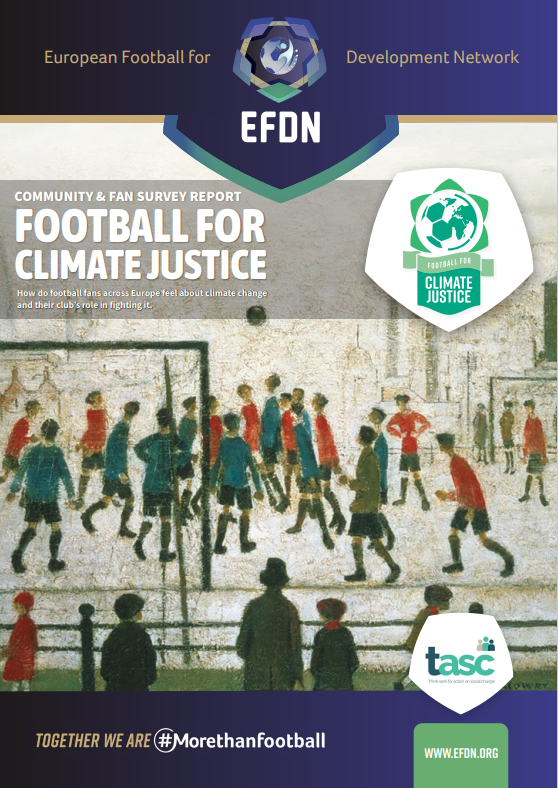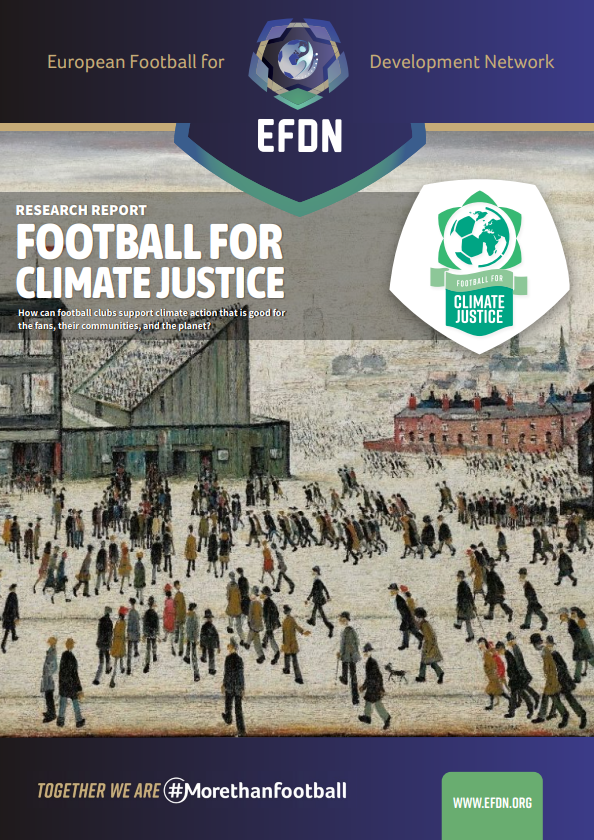Football for Climate Justice Reports Published!
Football for Climate Justice delivers the first two reports about fans perspective on climate justice; the Research Report and the Community & Fan Survey Report. The reports emphasise the importance of localisation and community-led development, highlighting the opportunity for clubs to empower communities to lead and even own the transition process, not simply participate in it. Following a community-wealth building approach, the report explores how clubs can encourage and support the initiatives like developing community-owned renewable energy projects, the creation of jobs in the low-carbon economy, and enabling their fans and local communities to have a voice in the decision making process on climate action.
It is clear from the fan survey conducted as part of the Football for Climate Justice project all clubs involved in this project have a robust mandate from fans to do this work. Football clubs are seen as an actor with responsibilities; not just to take their own sustainability actions, but to serve as a custodian of their fans and their communities’ future. Football clubs can provide platforms and advocate to enhance the agency of the people who fill our stadiums week in, and week out. Some highlights from the fan survey include:
- Over 75%of fans felt football clubs should be part of developing climate solutions.
- Over 72%of fans wanted to be informed about and participate in clubs environmental actions.
- Over 58% of fans agreed that football clubs should partner with local environmental NGOs and activists to advance this work.
- Over 75%of fans surveyed felt clubs had a role in supporting and facilitating environmentally friendly transport options on matchday.
Download the Community & Fan Survey Report and the Research Report
Click here to download the report(s)!


How was the report developed?
This report draws on the applied experience of project football partners, – including Bohemian FC, Club Brugge KV, FC St. Pauli, FC Twente, Ferencvárosi TC, FUNDACIÓN LALIGA, Real Betis Balompié and SV Werder Bremen – and the expertise of the Thinktank for Action on Social Change (TASC) and the European Football for Development Network (EFDN) to understand the role of football clubs in delivering a climate transition that prioritises people and reaches the furthest behind first. Rather than keep actions to improve the environment and actions to enhance local communities separate, this report proposes that both should be done simultaneously. Grounded in the principles of a People’s Transition, which include Economic Democracy, Community Wealth Building, and a Just Transition, the aim of this initiative is to strive for equitable distribution of resources, development of sustainable local economies, and a fair and inclusive transition to a low-carbon economy, particularly for vulnerable and marginalised communities.
What is Football for Climate Justice?
The “Football for Climate Justice” is a transformative framework for football clubs to shift from traditional sustainability approaches to a climate justice perspective. The aim is to enable clubs to enhance the standard of living of their fans and communities through climate action initiatives.




